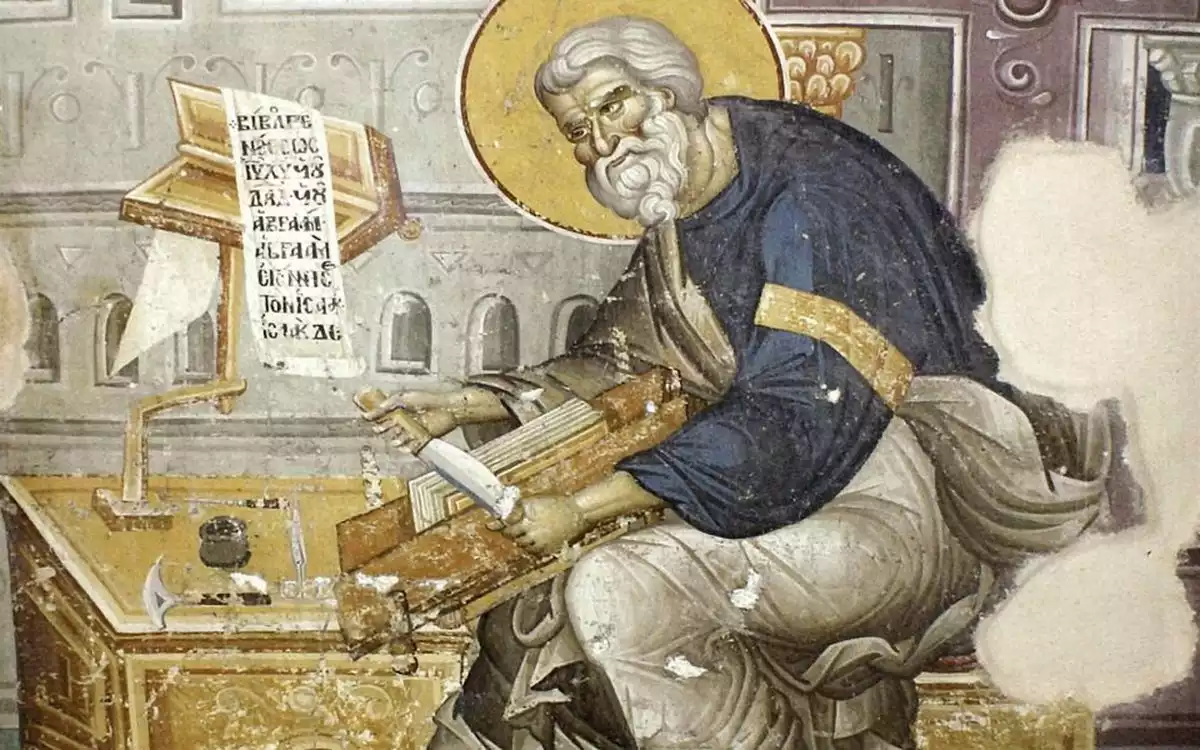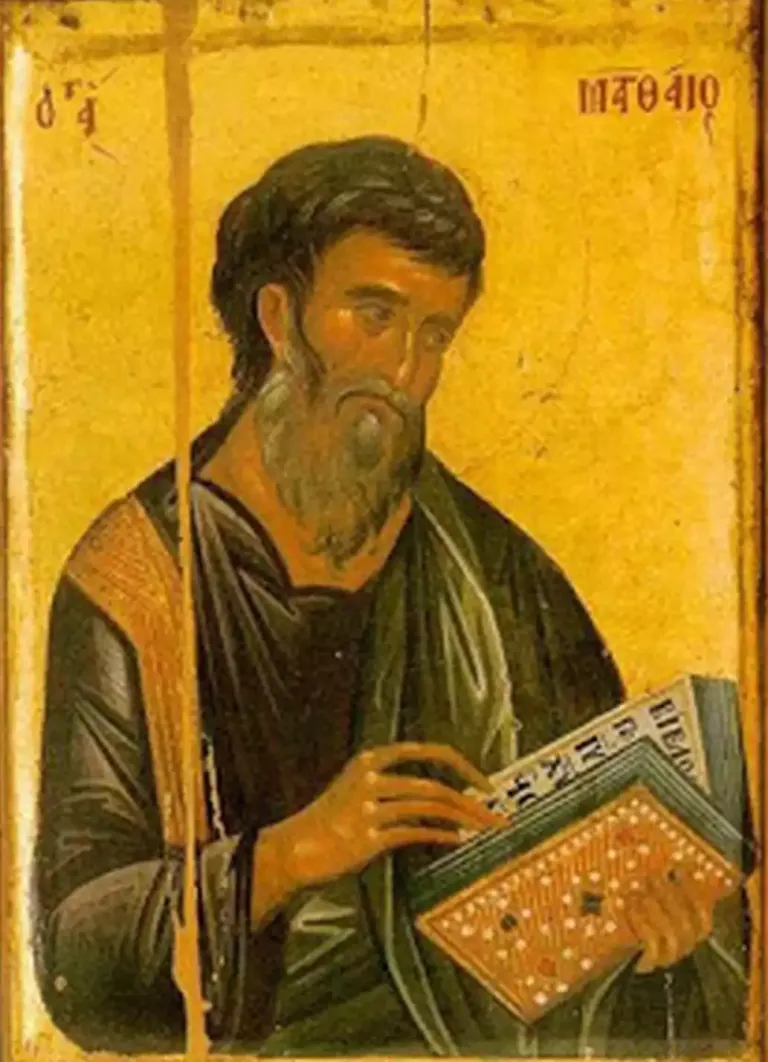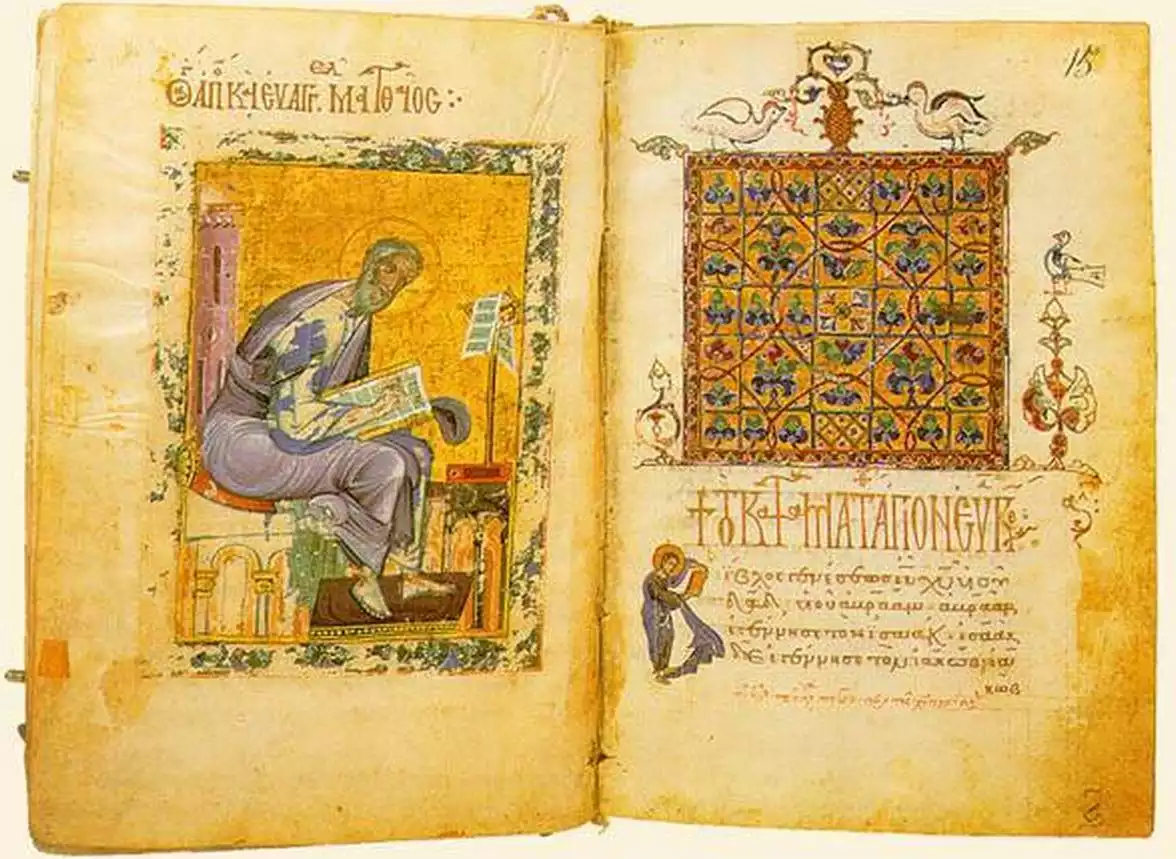
Saint Matthew, born Levi, was a first-century tax collector who became an apostle of Jesus Christ. He is traditionally credited with authoring the Gospel of Matthew, a key text in the Christian New Testament. Although the exact dates of his birth and death are uncertain, his transformative journey from a tax collector to a revered apostle and evangelist remains a cornerstone of Christian history.
Early Life and Conversion
Saint Matthew’s early years were marked by his occupation as a tax collector, a role often associated with corruption and greed during Roman rule. His life took a pivotal turn upon encountering Jesus Christ. This meeting, a defining moment, led to Matthew’s immediate abandonment of his former profession and his decision to follow Christ. His transformation highlights the power of faith and repentance in Christian teachings. Matthew’s conversion is a testament to the inclusive nature of Jesus’ ministry, extending grace even to those marginalized by society.

Saint Matthew’s Role as an Apostle
As an apostle, Saint Matthew played a crucial role in the early Christian Church. He was not only a witness to Christ’s teachings and miracles but also an active participant in spreading the Christian message. His background as a tax collector provided him with unique insights and skills, enabling him to approach his evangelistic mission with a distinctive perspective. Saint Matthew’s apostleship is emblematic of the diverse backgrounds of Christ’s followers, illustrating that faith transcends societal boundaries and personal histories. His journey from a tax collector to an apostle is a powerful narrative of redemption and service in the Christian tradition.
Authorship of the Gospel of Matthew
Saint Matthew’s most significant contribution to Christianity is his authorship of the Gospel of Matthew. This Gospel, the first book of the New Testament, provides a detailed account of Jesus’ life, teachings, death, and resurrection. Written primarily for a Jewish audience, it bridges the Old and New Testaments, emphasizing Jesus as the fulfillment of Old Testament prophecies. Saint Matthew’s unique perspective as a tax collector and apostle lends authenticity and depth to his narrative, making it a fundamental text in Christian theology and history.
Legacy and Impact on Christianity
The legacy of Saint Matthew extends far beyond the Gospel attributed to him. His life and teachings have had a profound impact on Christian theology and practice. As an apostle, his teachings helped shape the early Christian Church, and his Gospel has been a source of inspiration and guidance for Christians for centuries. Saint Matthew’s story is a powerful example of transformation and dedication to faith, serving as a beacon for believers seeking to deepen their relationship with God.

Saint Matthew’s journey from a tax collector to a revered apostle and evangelist encapsulates the transformative power of faith and the inclusive nature of Jesus’ ministry. His Gospel continues to be a vital source of Christian teachings, bridging Jewish tradition with the Christian message of redemption and grace. Saint Matthew’s legacy endures as a testament to the impact one individual can have in spreading faith and hope.
Feast Day: November 16
References
- Levine, Amy-Jill, and Marc Zvi Brettler. “The Jewish Annotated New Testament.” Oxford University Press, 2011.
- “New American Bible Revised Edition – The Gospel of Matthew.” United States Conference of Catholic Bishops, https://bible.usccb.org/bible/matthew/0. Accessed 28 Dec. 2023.
